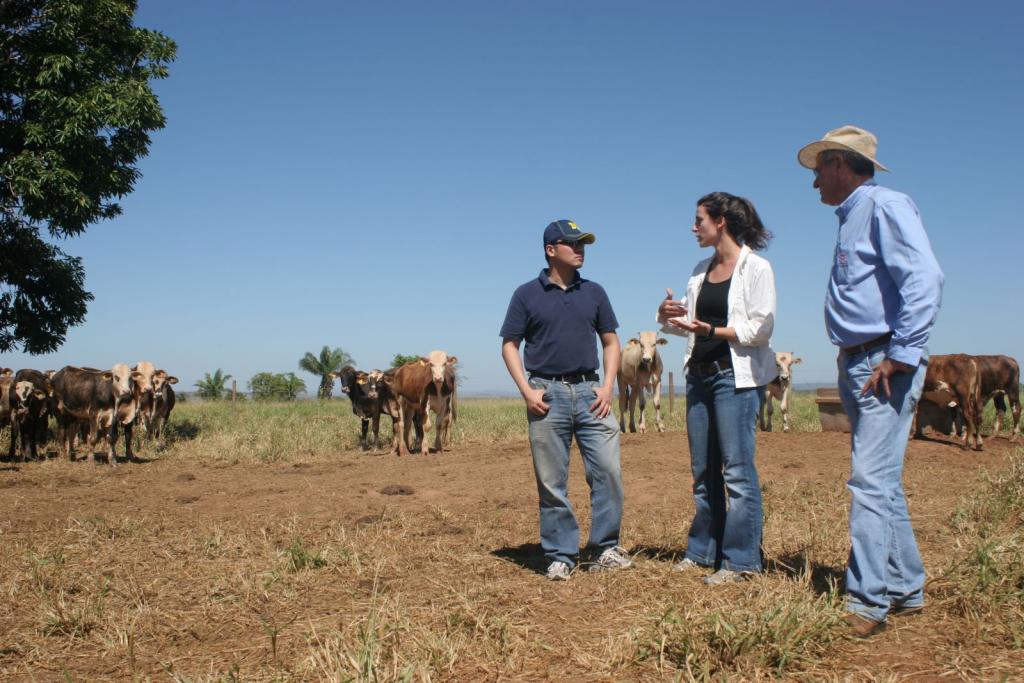Examining the new sustainable beef production certification in Brazil
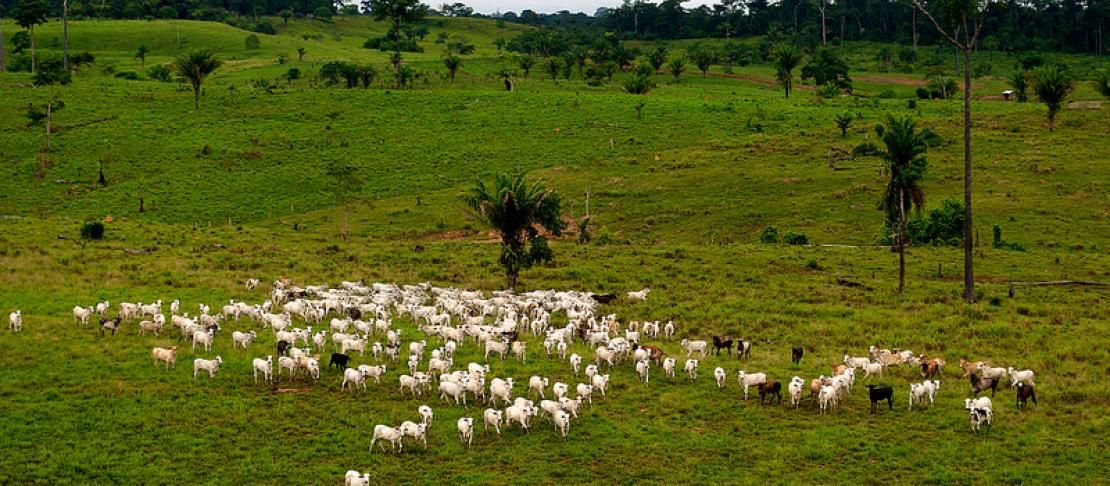
CCAFS researchers and University of Michigan students are exploring Brazilian cattle ranchers' participation in the Sustainable Agriculture Network’s Rainforest Alliance Certification.
Toninho pointed to a large tree as he approached the farm saying, “This tree was a sapling when I was a boy.” Every year, he takes a picture with this relic of his childhood – a symbol of his connection with the place where he has grown up and now makes a living.
Toninho is the farm manager at Fazenda São Marcelo, near Tangará da Serra in Mato Grosso—Brazil’s leading cattle ranching state. Fazenda São Marcelo is the first Sustainable Agriculture Network, Rainforest Alliance-certified cattle ranch in the world. CCAFS researchers and master’s students from the University of Michigan’s School of Natural Resources and Environment visited Fazenda São Marcelo to investigate the sustainability of the cattle ranching industry in general and specific opportunities and barriers to producer participation in the new sustainable beef certification program.
(From left to right) Ben and Helena talking to Farm manager Toninho. Photo: P Newton
Growth of beef production in Brazil
In the mid-1900s, the Brazilian government stimulated economic growth by building networks of roads from coastal cities into the western region of the country, enabling easier access to land for agriculture and encouraging people to convert forested lands to agriculture. Many new farmers chose to raise cattle, as cattle are not highly sensitive to disruptions in weather or food sources and are thus the agricultural commodity with the lowest perceived cost and risk.
To establish a cattle farm in western Brazil, a farmer found a plot of land, deforested it, and allowed cattle to graze. After a few years, when cattle had degraded the land and trampled over headwaters and streams, the farmer simply found a new plot of land in the vast Brazilian west and began the process over again. This went on for decades as the country’s economy grew and the farmers’ production increased.
In 2009, Greenpeace released an article entitled “Slaughtering the Amazon” that cited cattle ranching as the biggest driver of deforestation in Brazil. By 2011, the national cattle herd reached 212 million, and pressures from national and international organizations (NGOs) to slow deforestation became intense.
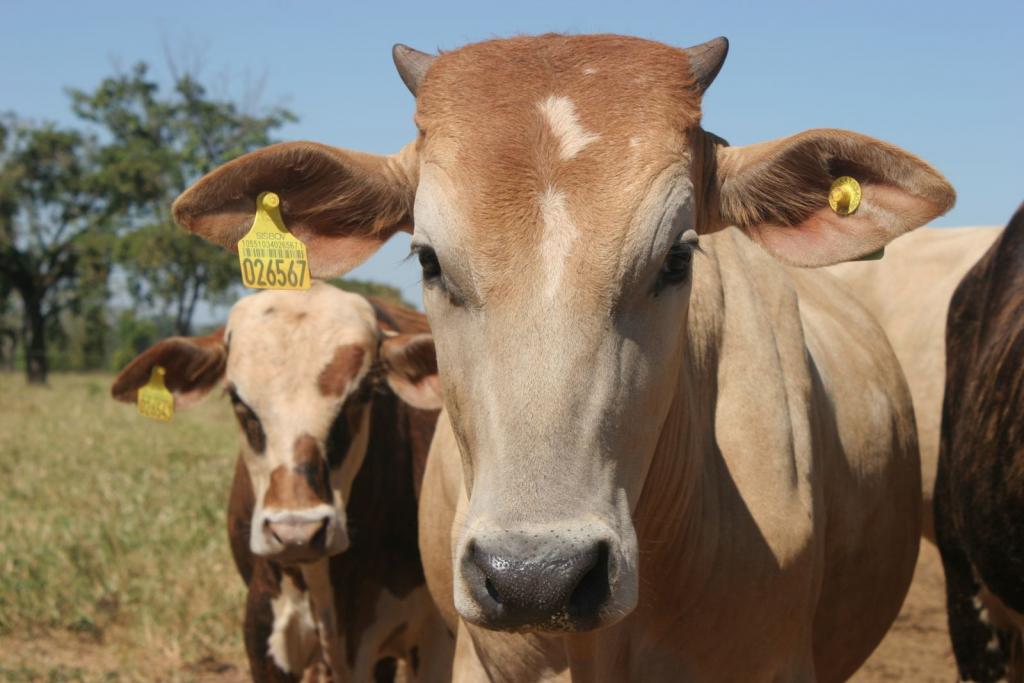
The famous Nelore cattle breed was brought from India to Brazil in the late 1800s and has been widely bred ever since. Photo: P. Newton
A progressive cattle ranch
Even before certification, Fazenda São Marcelo management practices employed a triple bottom line: social impact, environmental impact, and the more traditional finance. Fazenda São Marcelo implemented a number of projects to educate and prevent child and forced labor. They rehabilitated wildlife, such as parrots and other exotic animals, in a project called “Projetos Asas” that prepared wildlife to be released back into the wild. One of the parrots even stayed around the farm and is a permanent resident.
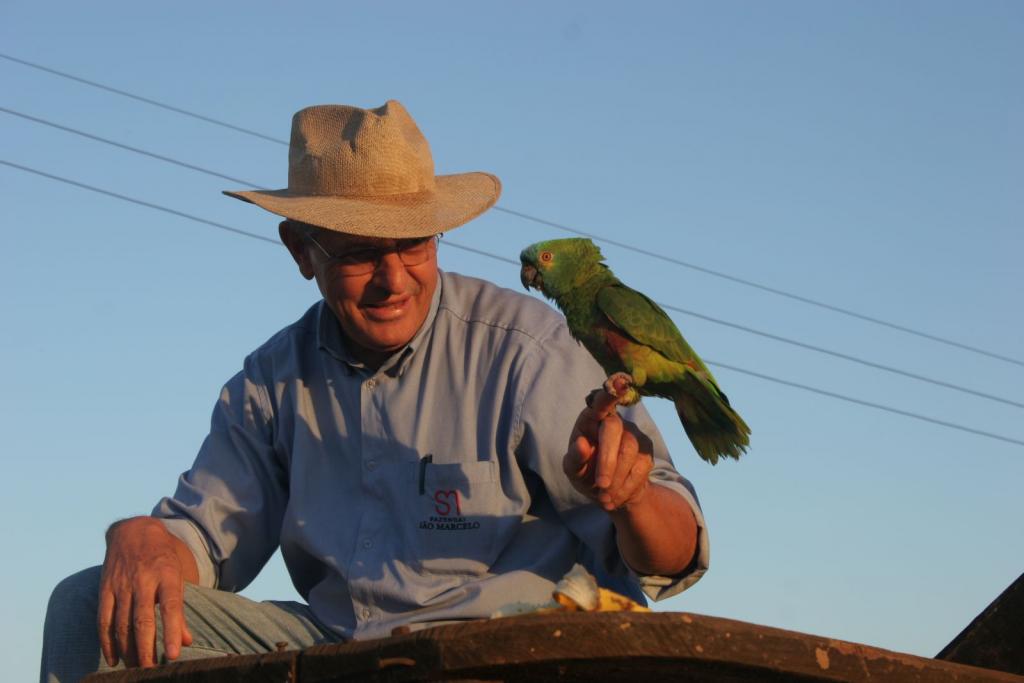
farm manager Toninho holding the (now) resident parrot from Projetos Asas. PHOTO: P. Newton
São Marcelo is involved in the cattle’s entire life cycle – from birthing calves to sending the full-grown cattle to slaughter. São Marcelo is also ensuring the next generation of Nelore cattle by selling the sperm of fertile, healthy bulls that show desirable characteristics, such as good temperament and steady and evenly distributed weight gain, to other farms for breeding.
Certification for sustainable beef production
The Sustainable Agriculture Network’s Rainforest Alliance certification program for sustainable beef production sets high standards for environmental and social sustainability, including deforestation limits, watershed protection, and animal welfare. The program – the first third-party certification program for beef in Brazil – is more rigorous than any existing law or incentive program in Brazil, and it also results in higher yields, measured in animal units per hectare.
Currently, São Marcelo produces 1.3 animal units per hectare, whereas the national average is 0.7. This high productivity is a consequence of effective management, including implementation of a feedlot for cows in the fattening stage. The cows’ growth is closely monitored and displayed on graphs in the office, and the feed – including sugar cane, cottonseed, corn, and minerals – is meticulously measured and mixed depending on how quickly the cows are gaining weight.
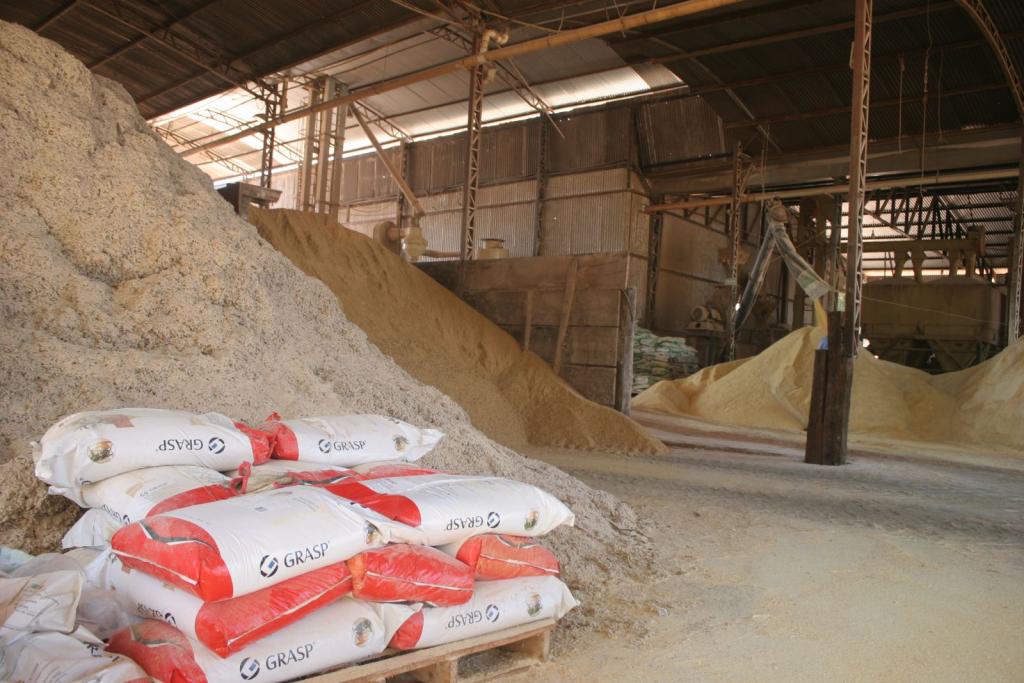
The warehouse where the feed is stored, measured out and distributed to the cows. From left to right - minerals, cotton seed, and ground corn kernels. Photo: P. Newton
Currently, 80% of beef produced in Brazil is consumed domestically, but the domestic market has only a very small price premium for sustainable or ethically-produced meat. Thus, there is little direct financial return on investment for farmers to become certified, except that the good practices that certification enforces result in higher yields, which is a goal for most farmers and a direction in which the Brazilian cattle sector is moving as a whole.
Commodity certification has had positive impacts elsewhere, but the cattle supply chain is uniquely complex and poses additional challenges. Still, those challenges are surmountable – as clearly shown by Fazenda São Marcelo – and the potential of certification to positively impact the sector is great.
Read more about this project.
Interested in the topic of sustainable commodity production? Read more: Exploring sustainable palm oil production in Indonesia
Melisa Ongun and Ben Chen are University of Michigan Master’s students. Peter Newton and Helena Nery are CCAFS researchers. The team’s visit to Fazenda São Marcelo in Mato Grosso, Brazil was part of the CCAFS and International Forestry Resources and Institutions (IFRI) Governance of Agriculture and Forest Landscapes project.

